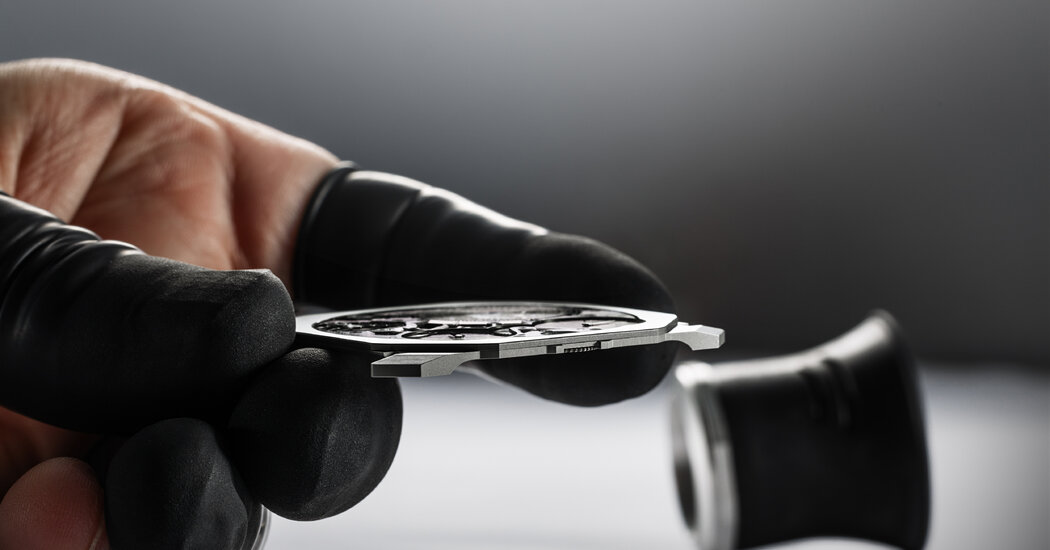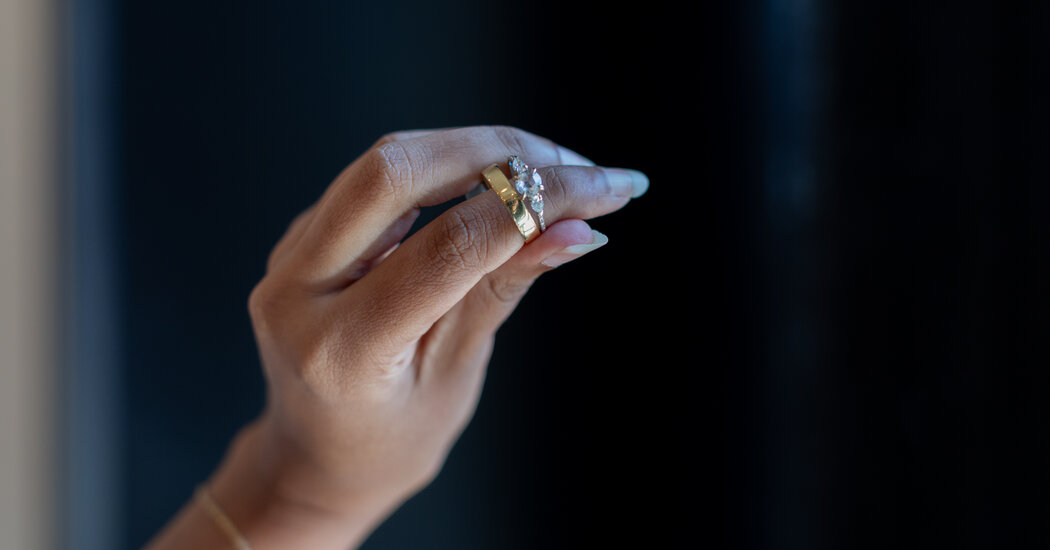Bulgari has its world record back. On Monday, the Italian luxury house with the Swiss fine watchmaking division reclaimed the record for the world’s thinnest mechanical wristwatch.
The Octo Finissimo Ultra Mark II is 1.7 millimeters thick, 0.05 millimeters thinner than Richard Mille’s 1.75 millimeter RM UP-01 Ferrari, which two years ago snatched the record from Bulgari’s 1.8 millimeter Octo Finissimo Ultra.
The difference? Half a tenth of a millimeter, approximately the thickness of a piece of office printer paper.
“This is sci-fi,” Antoine Pin, managing director of Bulgari’s watchmaking division, said of his record-breaker. “It makes people excited and brings global attention to the segment. After all, people don’t come to Bulgari for the rational, and you don’t buy a mechanical watch for the perfection of the time-keeping process.”
The race for the world’s thinnest mechanical watches has sped up in recent years.
Establishment watchmakers such as Audemars Piguet, Jaeger-LeCoultre and Piaget quietly jostled for super-slim supremacy for decades, then, in 2014, Bulgari’s newly formed fine watchmaking division slid into the record books for the first time with its five-millimeter Octo Finissimo Tourbillon, then the world’s thinnest tourbillon (a record that Piaget was scheduled to rewrite Tuesday with the introduction of its 2-millimeter-thick Altiplano Ultimate Concept Tourbillon).
Bulgari is now recognized as one of the first names in ultrathin watchmaking, registering its ninth world record for thinness with the new timepiece. Thinness is highly regarded by collectors and fellow makers because reducing parts can affect the integrity of watch components and their function.
Does Bulgari do it just for the glory? Mr. Pin insisted that the primary motivation was to advance watchmaking technologies.
“The idea was always to make sure we propose something that has horological value and not just to do the thing for the sake of doing it,” he said. “The paradox is that we work in an industry that is locked in the past, and yet still we’re projecting it into the future. More interesting than this notion of beating a thinness record is the notion of chronometry,” or the science of accurate time measurement.
As well as being a tenth of a millimeter thinner than the original Ultra, Mr. Pin said the Octo Finissimo Mark II is also more accurate, achieving the chronometer mark awarded by Switzerland’s independent Contrôle Officiel Suisse des Chronomètres, known as C.O.S.C., which appears on the new watch’s dial.
In most instances, a watch movement is tested by C.O.S.C. before it is inserted into its case. But the case and the movement of the Ultra Mark II are fused, so each one will be tested as a unit.
Mr. Pin said it was statistically impossible to say exactly how accurate the watch would be because each of the 20 numbered limited-edition pieces slated for production were likely to be slightly different. (He acknowledged that some might not even achieve C.O.S.C.’s accuracy requirement that a timepiece lose a maximum of four seconds or gain a maximum of six seconds a day.)
Mr. Pin also said that, despite its wafer-thin profile, the new watch would be robust. “Being small doesn’t mean being fragile,” he said. “What was important was never to forget the basics of watchmaking: give time and be wearable.”
He added that a buyer of the first Ultra wore it while playing golf. “But we would never advise that,“ he said.
The new watch, which has a 40-millimeter sandblasted titanium case and a 1.5-millimeter-thick bracelet in the same material, still has the 50-hour power reserve of the original model. Mr. Pin said the lessons of micro-mechanics established by the house’s ultrathin watches could one day be applied to larger models.
“No one would have imagined 15 years ago we could make such thin watches, and make them chronometers,” he said. “Ten years from now, we will find watches with a power reserve of two months.”
There are two differences between the first Ultra and the new watch: The Ultra Mark II lacks a QR code on the dial and a certificate backed up by blockchain. Instead, each watch is to have a unique QR code on its case back. That code is to include a link to what Bulgari is calling a Datamatrix, an online product manual specific to the individual watch that also includes generic videos of Ultra Mark IIs being made.
Mr. Pin said he was glad that other brands’ efforts to develop ultrathin watches had driven Bulgari to go thinner.
“Piaget’s record was massively important for us to develop our own product,” he said, referring to Piaget’s two-millimeter Altiplano Ultimate Concept, which debuted in 2018. “If Piaget or Richard Mille comes with another record, there’s a lot we can learn from each other.”
After all, he said: “For us, hitting this record, it’s not the end of the story.”







